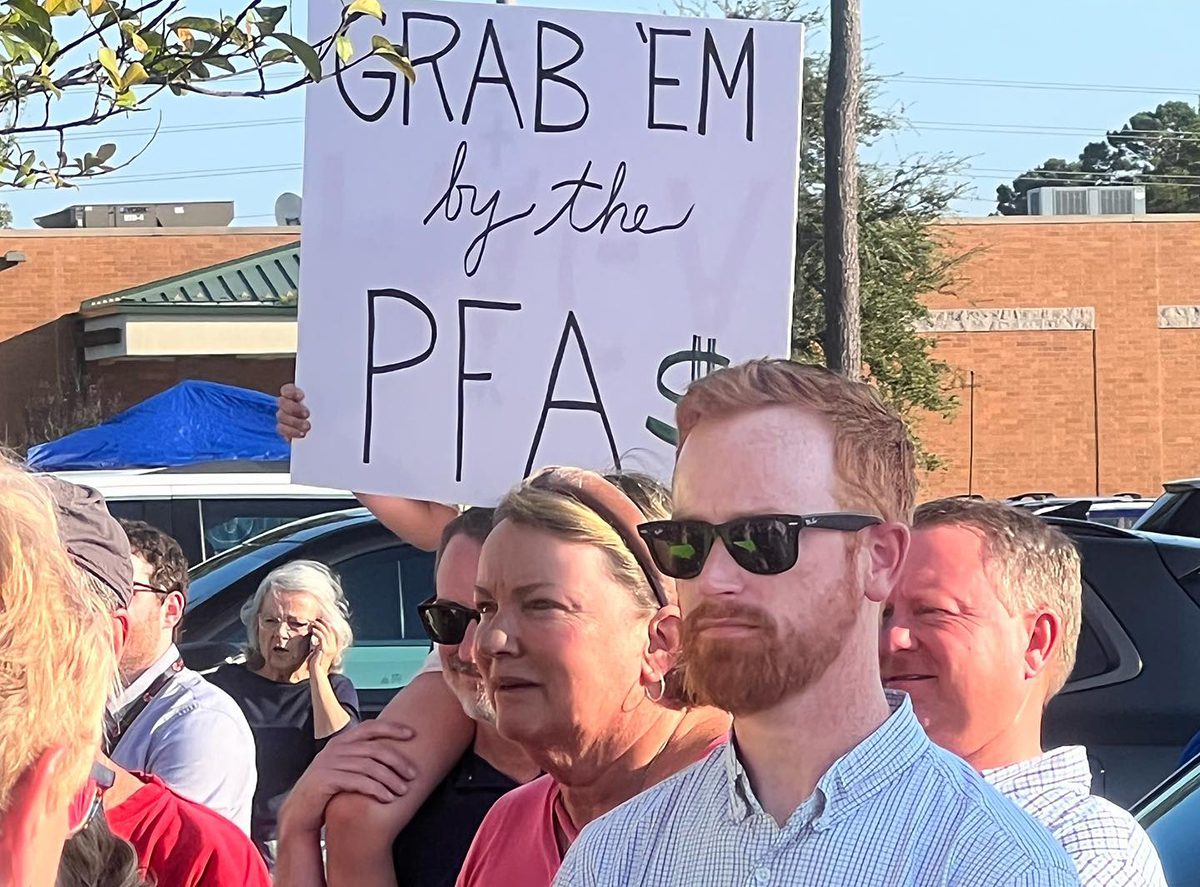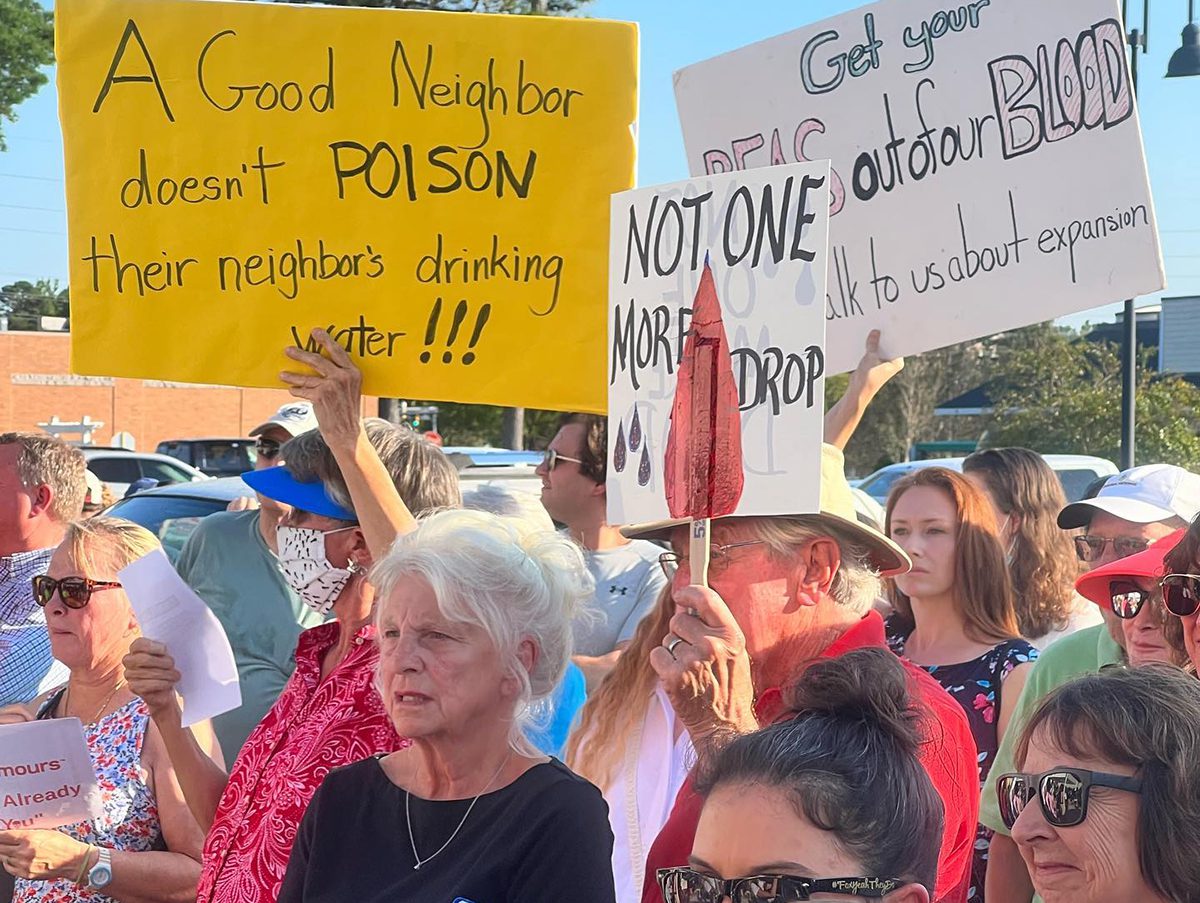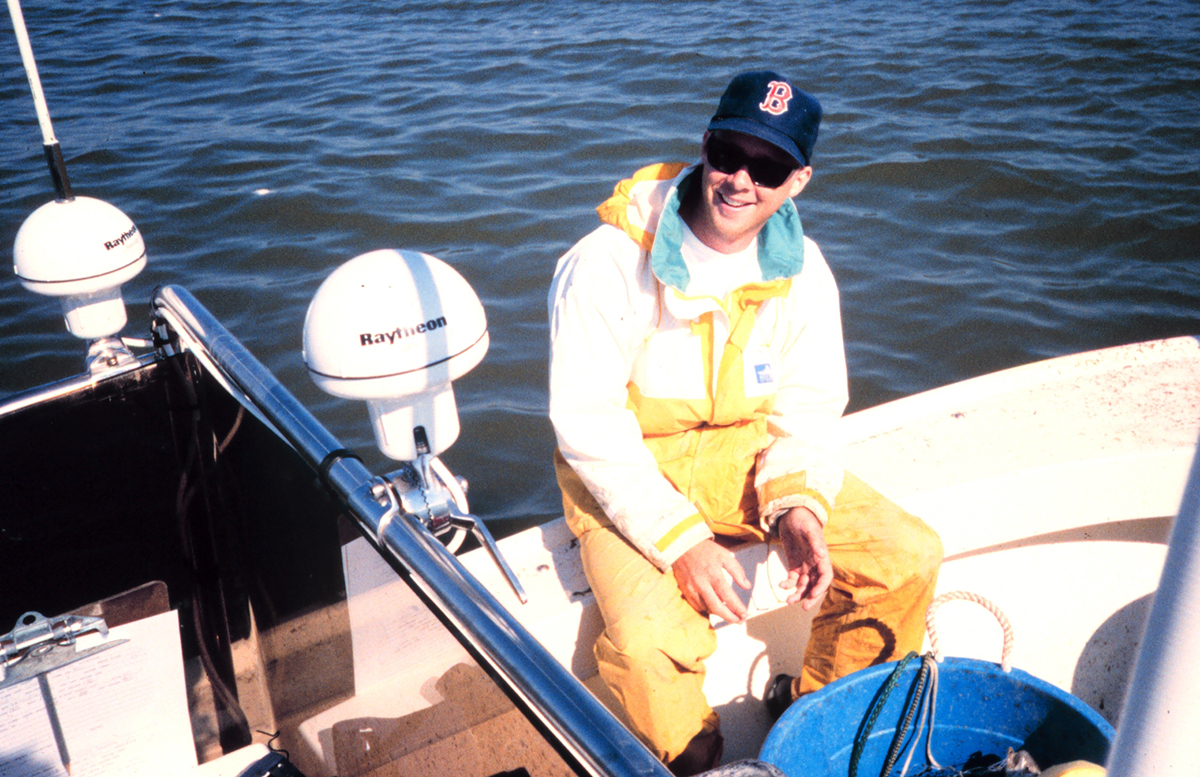
The U.S. Court of Appeals this week dismissed a chemical company’s claim that the health advisory the Environmental Protection Agency issued in June 2022 for certain man-made chemicals found in drinking water was “unlawful and should be vacated.”
The 3rd Circuit three-judge panel in Philadelphia heard the argument Jan. 31 and filed its opinion Tuesday.
Supporter Spotlight
Chemours Co., which has a facility near Fayetteville, cited a section of the Safe Drinking Water Act that allows petitions for review of “any … final action of the Administrator under this chapter,” according to the ruling.
“Contending that the advisory was unlawful, the Chemours Company petitioned for review of EPA’s action. We will dismiss the petition for lack of subject matter jurisdiction because the health advisory is not a final agency action,” the judges found.
The EPA estimates that there are thousands of different per- and polyfluoroalkyl substances, or PFAS, chemicals used in a range of products like home goods and in manufacturing. PFAS have been detected in surface water, groundwater, rainwater and drinking water. Exposure to some of these widely used, long-lasting synthetic chemicals may be toxic to humans.
“This decision supports the very important Safe Drinking Water Act health advisory program,” EPA press secretary Remmington Belford told Coastal Review Wednesday about the ruling.
The Center for Environmental Health, Cape Fear River Watch, Clean Cape Fear, Democracy Green, North Carolina Black Alliance, Toxic Free North Carolina, Natural Resources Defense Council and five residents intervened a month after Chemours filed the petition for review in July 2022. Officials with the groups released an announcement Tuesday applauding the court’s decision.
Supporter Spotlight
“Through the years, our community has learned that when companies like Chemours are not actively hiding the science, they are usually attacking it. This is a win for public health and every resident harmed by GenX exposures. The courts got it right this time,” Emily Donovan, co-founder of Clean Cape Fear said Tuesday in a release.
“We were hopeful and cautiously optimistic; however, we’ve also seen a shift in court rulings recently that have not been friendly to environmental protections and public health. Yesterday’s verdict was refreshing,” she said in an interview Wednesday.
“We believe this ruling is significant for private well owners in the region dealing with Chemours-specific PFAS contamination,” Donovan continued, adding that DEQ adopted the EPA’s GenX health advisory when it came out in 2022 and the ruling Tuesday means DEQ can keep moving forward and require Chemours to provide remedies to private well owners who have levels of GenX exceeding 10 parts per trillion. Historically it was 140 ppt.
“DEQ has made addressing PFAS a priority and will continue to rely on science-based, peer-reviewed health standards to protect human health in North Carolina while implementing the Maximum Contaminant Levels set by EPA and pursuing state-level surface water and groundwater standards for PFAS compounds, including GenX,” NCDEQ Deputy Communications Director Josh Kastrinsky said Wednesday.
“The Court strongly and unanimously rejected Chemours’s attempt to kill EPA’s scientific guidance on how communities can protect themselves from toxic GenX contamination in tap water,” said Sarah Tallman, senior attorney with the Natural Resources Defense Council. “Everyone has a right to turn on their kitchen tap and have safe water, so we will continue to fight the chemical industry and others who try to block efforts to protect our health from toxic hazards.”
Cape Fear River Watch Executive Director Dana Sargent said in the release that Chemours fought this health advisory level “for the same motivation behind all their actions: money. While the court did not acknowledge their smokescreen, we are grateful they rejected Chemours’ nefarious claim.”
Chemours said the ruling was merely a procedural loss.
“While we are disappointed with the Third Circuit’s dismissal of our appeal on procedural grounds, the decision means the U.S. EPA’s health advisory on HFPO-Dimer Acid (HFPO-DA) is not enforceable,” Chemours Representative Cassie Olszewski told Coastal Review Wednesday.
“Chemours has challenged — along with groups of drinking water providers and manufacturers — the EPA’s Maximum Contaminant Limits (MCL) for drinking water which utilize, in part, the same scientifically unsound analysis. We look forward to having the D.C. Circuit consider the merits of our arguments in connection with our pending challenge to the EPA’s MCL regulation,” Olszewski said.
Leading up to the judges’ decision
After news reports in June 2017 that several types of PFAS had been detected in the Cape Fear River, the North Carolina Department of Environmental Quality identified Chemours’ Fayetteville Works facility as the source.
Cape Fear River watch sued both the Department of Environmental Quality and Chemours, resulting in a consent order that has allowed the company to continue operating since February 2019. Since then, both the EPA and DEQ say they have been taking steps to address PFAS.
“Drinking water health advisory levels are non-regulatory health-based values that are provided for informational purposes,” according to the EPA. “On June 15, 2022, the EPA published final drinking water health advisories (HAs) for perfluorobutane sulfonic acid and its potassium salt (PFBS) and hexafluoropropylene oxide dimer acid (HFPO-DA) and its ammonium salt (‘GenX chemicals’).”
The final health advisory values were based on the final EPA toxicity assessments published in 2021, the agency said.
Chemours uses HFPO-DA as a “patented polymerization aid in the manufacture of fluoropolymers,” the trade name for which is GenX, according to the company.
Chemours filed the petition for review in July 2022, saying the health advisory was arbitrary and capricious and that it was otherwise inconsistent with the law, because EPA incorporated grossly incorrect and overstated exposure assumptions―in essence, EPA used the wrong chemical when making its exposure assumptions, thereby resulting in a significantly less tolerant health advisory for HFPO Dimer Acid than is warranted by the data,” according to the petition.
The 3rd Circuit found that Congress enacted the Safe Water Drinking Act to protect drinking water quality, and authorizes the EPA administrator to address contaminants in waters by taking various actions, such as putting a regulation in place or issue health advisories.

Once EPA officials have the final toxicity assessment, exposure factors and relative source contribution, the federal agency can then publish a health advisory “to inform decisionmakers of what it deems is a safe level of the contaminant in drinking water.”
In this instance, the EPA developed a health advisory. Advisories are not regulations, but “provide information’ about a safe level of a contaminant so that government officials and managers of public water systems can ‘determine whether actions are needed to address the presence of [the] contaminant in drinking water,’” the court found.
In August 2022, the nonprofit organizations and five residents intervened in the case.
The Center for Environmental Health represented Cape Fear River Basin community groups and individuals who have relied on the advisory to fight for health protective drinking water, Senior Legislative Counsel Tom Fox said in a release.
“The Third Circuit correctly found that it lacked subject matter jurisdiction because the GenX health advisory is not a final agency action. The court rejected Chemours’ attempts to convert the advisory into a reviewable action with examples of indirect consequences of the health advisory,” Fox said.
Donovan told Coastal Review Wednesday that Clean Cape Fear intervened because ‘We wanted the courts to see that the American people — especially those of us living in North Carolina, are hungry for strong enforceable protections the Biden/Harris EPA is implementing regarding PFAS. Chemours publicly claims GenX is safe but the best available science disagrees. We’re tired of Chemours attacking the EPA when it actually begins to do its job and serve the people.”
What’s next?
Chemours filed in June a similar petition for review in the Washington, D.C., circuit after the EPA issued in April the final National Primary Drinking Water Regulation for six PFAS, including perfluorobutane sulfonic acid and its potassium salt, or PFBS, and GenX chemicals, specifically, HFPO-DA.
“EPA expects that over many years the final rule will prevent PFAS exposure in drinking water for approximately 100 million people, prevent thousands of deaths, and reduce tens of thousands of serious PFAS-attributable illnesses,” the agency said in April. The drinking water regulation established legally enforceable levels for several PFAS.
Donovan noted Wednesday that Clean Cape Fear had learned Tuesday that the group was granted the ability to intervene in defense of EPA’s PFAS drinking water standards.
“Chemours, the American Chemistry Council and other groups sued the EPA earlier this year when the first-ever federal drinking water standards for PFAS were finalized. We joined forces with EarthJustice and other contaminated community groups across the nation to intervene in that lawsuit, as well,” she said.







